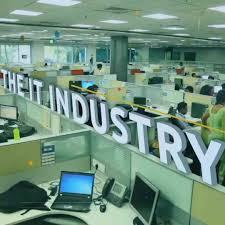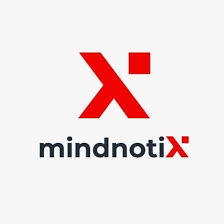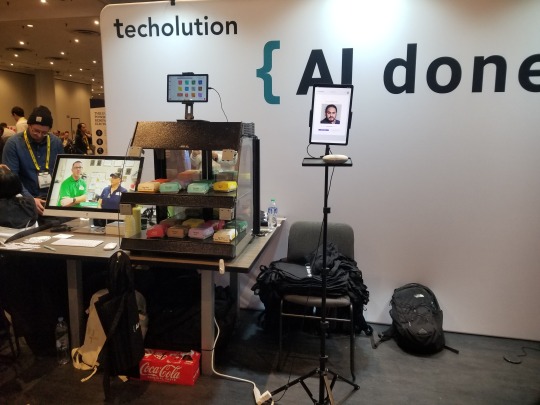#Robotic Process Automation Financial Services Market
Explore tagged Tumblr posts
Text
China Recruitment Results 2025: Trends, Insights, and Analysis
As the arena's second-biggest economy, China is still a primary player within the international exertions marketplace. The today's recruitment effects from 2025 display key trends and insights across industries, demographics, and regions. Companies, activity seekers, and policymakers alike can gain from know-how these shifts, as they replicate China's evolving economic landscape, expertise priorities, and marketplace demands.

Recruitment Process In China
1. Strong Recovery in Recruitment Activity
In 2025, China’s recruitment market noticed a incredible rebound, following years of pandemic-associated disruptions and financial uncertainty. According to statistics from a couple of human resources and exertions market tracking agencies, general job openings in China increased through about 12% 12 months-on-12 months. This growth turned into frequently driven via sectors which include generation, renewable power, superior production, and modern-day offerings, which includes finance and healthcare.
The surge in recruitment pastime is basically attributed to China’s push closer to monetary modernization and innovation, aligning with the government’s "14th Five-Year Plan" and its vision for incredible development. Furthermore, easing COVID-19 restrictions inside the past two years has revitalized domestic demand, especially in urban centers like Shanghai, Shenzhen, and Beijing, wherein expertise demand stays high.
2. Sector-by using-Sector Breakdown
Technology Sector
China’s tech enterprise stays one in every of the most important recruiters in 2025, with hiring increasing with the aid of 15% in comparison to 2024. Companies running in regions such as synthetic intelligence (AI), semiconductor production, cloud computing, and 5G/6G network infrastructure are main the demand. In precise, the AI and automation sectors skilled document-breaking recruitment, as agencies throughout numerous industries put into effect virtual transformation techniques.
Manufacturing and New Energy
Advanced manufacturing—together with robotics, aerospace, and electric vehicles (EVs)—recorded an eleven% uptick in hiring. With China striving to grow to be a global leader in EV production and inexperienced technology, recruitment in battery generation, renewable energy engineering, and environmental technology has also elevated. The expansion of sun and wind electricity initiatives in inland provinces which include Inner Mongolia and Xinjiang has opened new activity opportunities out of doors main metropolitan hubs.
Financial and Business Services
Financial offerings confirmed a moderate but consistent 7% increase in hiring, in particular in fintech, funding banking, and risk management roles. The fast adoption of virtual finance systems and the growth of inexperienced finance initiatives contributed to this upward fashion. Similarly, prison and compliance departments saw a surge in call for, as stricter regulatory requirements and international exchange dynamics precipitated corporations to strengthen their internal controls.
Healthcare and Life Sciences
China’s growing old populace and the authorities's focus on enhancing healthcare infrastructure have boosted hiring within the medical and pharmaceutical sectors. Hospitals, biotech firms, and healthtech startups elevated recruitment via nine% yr-on-12 months. Special emphasis become placed on roles associated with scientific research, clinical trials, and public fitness management, reflecting China's ambitions to beautify its healthcare resilience.
Three. Regional Disparities in Recruitment
While Tier 1 towns like Beijing, Shanghai, Guangzhou, and Shenzhen hold to dominate in phrases of activity vacancies, there was a major uptick in hiring in Tier 2 and Tier 3 towns, which includes Chengdu, Hangzhou, Xi’an, and Suzhou. The government’s urbanization strategy and nearby improvement rules are riding this shift. Inland provinces and less-advanced regions are actually attracting extra investment, main to activity advent in industries along with logistics, e-trade, and smart production.
This geographic diversification is also related to the upward thrust of far off work, as agencies come to be more bendy in hiring talent from diverse locations. As a end result, skilled specialists are now not limited to standard financial hubs and are finding competitive possibilities in rising cities.
4. Recruitment Challenges: Skills Gaps and Talent Shortages
Despite the overall high quality recruitment results, several sectors pronounced continual demanding situations, specially regarding skills shortages in high-tech and specialised fields. For instance, the semiconductor enterprise keeps to stand a essential gap in skilled engineers and researchers, while the inexperienced electricity area is struggling to find sufficient skilled task managers and technical experts.
Soft abilties consisting of leadership, go-cultural communique, and trouble-fixing also continue to be in excessive demand, mainly as Chinese organizations make bigger their global operations. Talent shortage has led to accelerated competition among employers, riding up salaries for niche roles and prompting groups to make investments extra heavily in inner schooling and improvement packages.
Five. Demographic Shifts: Youth Employment and Aging Workforce
Youth employment remains a complicated problem in China. While job opportunities for younger graduates have grown along financial recuperation, excessive competition and high expectancies hold to pose demanding situations. The countrywide young people unemployment charge stood at about 14% in early 2025, slightly decrease than in 2024 but nonetheless a subject for policymakers.
In reaction, the authorities has expanded employment subsidies, vocational education initiatives, and entrepreneurship programs focused on young human beings. Additionally, more college students are choosing internships, apprenticeships, and industry-connected educational pathways to decorate employability earlier than commencement.
Meanwhile, the getting old group of workers provides its very own set of challenges. Industries including manufacturing, logistics, and healthcare are increasingly more searching out ways to preserve older employees through re-skilling applications and flexible work preparations.
6. Trends in Hiring Practices
Recruitment practices in China are evolving, with organizations leveraging AI-pushed recruitment equipment, virtual exams, and facts analytics to streamline hiring processes. Many organizations now prioritize candidate experience, the use of era to lessen time-to-lease and improve engagement at some point of the recruitment cycle.
Campus recruitment remains a key approach for principal agencies, mainly in sectors which includes generation, finance, and engineering. However, there may be a developing desire for hiring candidates with realistic revel in, main to greater collaboration between universities and companies to offer industry-relevant guides and internships.
Diversity and inclusion are also gaining traction. Companies are increasingly dedicated to gender balance and hiring talent from numerous backgrounds, which include ethnic minorities and worldwide candidates, specially within the tech and R&D sectors.
7. Outlook for 2025 and Beyond
Looking in advance, China’s recruitment panorama is predicted to remain dynamic. The persisted improvement of emerging sectors consisting of quantum computing, biotechnology, smart towns, and the metaverse will create new employment opportunities, specially for skills with interdisciplinary ability sets.
Policy shifts, which includes similarly liberalization of the hard work market and supportive measures for small and medium corporations (SMEs), may also stimulate job advent. Additionally, the emphasis on sustainable improvement and digital innovation is in all likelihood to reshape hiring priorities, with an growing awareness on inexperienced jobs and virtual literacy.
However, geopolitical uncertainties, change tensions, and worldwide monetary fluctuations will remain key elements influencing China’s hard work marketplace within the close to destiny. Businesses and activity seekers alike will need to stay agile, adapting to changing financial situations and technological advancements.
#Recruitment Process In China#12th pass students apply#college pass students apply china government recruitment result
2 notes
·
View notes
Text
Rajasthan’s Innovation-Driven Growth to a Digitally Empowered Workforce: Col Rajyavardhan Rathore


The Vision for a Digitally Empowered Rajasthan
The goal is clear: make Rajasthan a leader in digital innovation and skill development, ensuring that its workforce is ready for a future dominated by technology. This vision includes:
Modern Infrastructure: Establishing IT hubs, smart cities, and innovation centers.
Skilled Workforce: Upskilling youth with digital tools and technologies.
Startup Ecosystem: Creating an environment conducive to entrepreneurship.
Key Pillars of Rajasthan’s Innovation-Driven Growth
1. Smart Cities and Digital Infrastructure
Rajasthan is focusing on creating smart cities with advanced digital infrastructure, including:
Public Wi-Fi Networks: Ensuring seamless internet access for all.
E-Governance: Digitizing public services for transparency and efficiency.
2. Education and Skill Development
Digital Literacy Programs: Training citizens, especially in rural areas, to use technology effectively.
IT Training Institutes: Partnering with tech companies to offer specialized courses in AI, machine learning, and blockchain.
3. Promoting Startups and Innovation
Rajasthan is becoming a hotspot for startups with initiatives like:
Rajasthan Startup Policy: Providing funding, mentorship, and incubation for startups.
Innovation Hubs: Centers to foster collaboration and creativity among young entrepreneurs.
4. Industry 4.0 Adoption
Industries in Rajasthan are adopting cutting-edge technologies to boost productivity, including:
Automation in Manufacturing: Robotics and IoT to streamline processes.
Agri-Tech Solutions: Drones and AI for smarter farming practices.
Government Initiatives Driving Digital Transformation
1. Rajasthan IT/ITES Policy
Offering tax incentives and subsidies to IT companies.
Promoting investments in software development, BPOs, and data analytics.
2. Digital Rajasthan Mission
Connecting every village with high-speed internet.
Training women and marginalized communities to ensure inclusivity.
3. Rajasthan DigiSkill Program
Focused on creating a digitally literate workforce by 2025.
Courses include coding, app development, and digital marketing.
Impact on Rajasthan’s Workforce
Upskilling for the Future
Rajasthan is preparing its youth for the jobs of tomorrow by:
Integrating coding and STEM education into school curriculums.
Offering scholarships and incentives for IT-related higher education.
Job Creation in Emerging Sectors
IT and software development are generating thousands of jobs.
Growth in startups and innovation hubs is fostering entrepreneurship.
Inclusivity in Digital Growth
Focus on training women and rural communities to bridge the digital divide.
Col Rajyavardhan Rathore’s Role in Digital Transformation
Col Rathore has been a vocal advocate for leveraging technology to empower the people of Rajasthan. His contributions include:
Policy Advocacy: Pushing for policies that prioritize innovation and digital literacy.
Youth Engagement: Encouraging young minds to explore careers in IT and entrepreneurship.
Community Outreach: Promoting the benefits of digital transformation in rural areas.

Success Stories of Digital Rajasthan
1. Bhamashah Yojana
One of the first initiatives to leverage digital platforms for direct benefit transfers, empowering women and ensuring financial inclusivity.
2. Rajasthan Sampark
A citizen grievance redressal system that ensures transparency and accountability through digital means.
3. RajNET
A unified network connecting the state’s administrative and public service systems with high-speed internet.
Challenges and Solutions
Challenges
Digital Divide: Ensuring access to technology in remote areas.
Skilled Workforce Shortage: Meeting the demand for advanced IT skills.
Infrastructure Gaps: Lack of high-speed internet in some regions.
Solutions
Targeted Programs: Focused digital literacy drives in rural areas.
Public-Private Partnerships: Collaborations with tech giants to set up training centers.
Expanding Connectivity: Investments in fiber optics and satellite internet.
The Road Ahead: A Digital Rajasthan
Rajasthan is on the cusp of a digital revolution. With continued focus on innovation, skill development, and inclusive growth, the state is poised to become a beacon of digital excellence in India. Visionaries like Col Rajyavardhan Rathore are ensuring that this transformation benefits every citizen, bridging gaps and unlocking new opportunities.
As Rajasthan strides forward, it not only redefines its identity but also sets an example for other states to emulate.
2 notes
·
View notes
Text
IT companies in Coimbatore :Hiring freshers role and benefit
Coimbatore has emerged as a preferred location for IT professionals due to its affordable cost of living, high-quality educational institutions, and the city’s well-developed infrastructure. Unlike metropolitan cities, IT companies in Coimbatore offers a balanced lifestyle with a lower cost of living, which appeals to many working professionals. With a pool of skilled talent graduating from nearby engineering and technical institutions, Coimbatore is an ideal place for IT companies to find qualified candidates for various roles, making it a hot spot for job seekers.

Who Are the Leading IT Companies in Coimbatore?
The city hosts several top IT companies, including Tata Consultancy Services (TCS), Cognizant, Wipro, and Robert Bosch, along with growing regional players like KGISL and Aspire Systems. These companies offer a variety of services from software development to business consulting and automation solutions. Working with such companies not only provides a chance to learn and grow but also adds credibility to one's career profile. Their well-established infrastructure and focus on training employees make them attractive employers in the region.
Best IT Companies in Coimbatore :
Coimbatore, one of Tamil Nadu's major industrial hubs, has seen significant growth in the IT sector. Known for its skilled workforce, affordable infrastructure, and a supportive business ecosystem, the city hosts many IT companies that offer a wide range of services from software development to digital transformation.

Here’s a look at some of the best IT company in Coimbatore :
Accenture :

Global consulting and technology services company providing full-fledged IT and business process services.
ThoughtWorks:

Leaders in software consultancy to get custom software developed through agile methodology and digital transformation
Payoda Technologies :

focuses primarily on aspects of digital transformation, analytics, cloud solution development and software development.
Sridhar Vembu Institute of Technology (Zoho Corp) :

It is based in Chennai; however, the innovation and research wing of Zoho is based in Coimbatore, where it works on software product development.
Softratech Info :

The company provides IT solutions, consultancy, software development, and support services.
Repute Network :

A technology-based company, focusing on digital payments, financial technologies, and blockchain solutions
Mindnotix Technologies :

A technology firm, developing web and mobile applications as well as AR/VR-based applications, and AI-driven applications.
Kumaraguru College of Technology :

Technology Business Incubator (KCT-TBI) - Incubates start-ups and tech innovation in IoT, AI, robotics, and software solutions.
Revature India :

Trains and develops software services and products, focusing on creating technical talent for the global market.
i2i Software Solutions :

Offers end-to-end software solutions and IT services, with a focus on custom development.
eQuadriga Software Pvt Ltd :

is an IT services company focusing on software development, mobile apps, and digital marketing.
Conclusion :
Coimbatore’s IT sector is full of opportunities for freshers, thanks to a supportive ecosystem of companies and a growing tech community. From MNCs like Cognizant and Bosch to dynamic startups, IT companies in Coimbatore provides ample options for fresh graduates eager to kickstart their careers. With a focus on learning, networking, and skill development, freshers can build a promising career in this thriving city.
#it company#IT companies in Coimbatore#internship#freshers it job#jobseekers#jobs#employment#careers#workplace#inside job
3 notes
·
View notes
Text
The Impact of AI Software on Business: Enhancing Efficiency with AI Business Tools
In today's fast-paced digital landscape, businesses are continuously seeking innovative solutions to enhance productivity and streamline operations. AI software for business and AI business tools have emerged as transformative technologies, enabling organizations to harness the power of artificial intelligence to improve efficiency, decision-making, and customer satisfaction. This article explores the benefits, applications, and best practices of integrating AI software into your business strategy.
Understanding AI Software for Business
AI software for business encompasses a wide range of applications and tools designed to perform tasks that typically require human intelligence. These can include natural language processing (NLP), machine learning (ML), computer vision, and robotic process automation (RPA). By leveraging these technologies, businesses can automate routine tasks, analyze large datasets, and gain insights that drive strategic decision-making.
Benefits of AI Software
Increased Efficiency: One of the primary advantages of AI software is its ability to automate repetitive tasks. For example, businesses can use AI-powered chatbots to handle customer inquiries, allowing human agents to focus on more complex issues.
Data Analysis and Insights: AI tools can analyze vast amounts of data quickly, providing valuable insights that help businesses make informed decisions. This capability is particularly beneficial in areas such as market research, customer behavior analysis, and financial forecasting.
Enhanced Customer Experience: AI software can personalize customer interactions by analyzing user behavior and preferences. For instance, AI can recommend products based on past purchases, improving customer satisfaction and loyalty.
Cost Savings: By automating tasks and improving operational efficiency, businesses can significantly reduce labor costs. AI tools can help identify inefficiencies and areas for improvement, leading to further cost reductions.
Scalability: AI business tools can easily scale with a company’s growth. As a business expands, AI solutions can adapt to increasing data volumes and more complex operational needs without requiring a complete overhaul.
Key Applications of AI Business Tools
AI business tools can be integrated into various business functions, enhancing productivity and effectiveness. Here are some key applications:
1. Marketing Automation
AI software can analyze customer data to optimize marketing campaigns. Tools like predictive analytics can forecast customer behavior, allowing businesses to tailor their marketing strategies for better engagement. Moreover, AI can automate social media posting and email marketing, ensuring timely communication with minimal effort.
2. Customer Service
AI-powered chatbots are revolutionizing customer service by providing instant responses to customer inquiries. These bots can handle multiple requests simultaneously, improving response times and reducing wait times for customers. Additionally, AI can analyze customer interactions to identify common issues and suggest improvements to service processes.
3. Sales Optimization
AI business tools can streamline the sales process by providing insights into customer behavior and preferences. Sales teams can utilize AI for lead scoring, identifying high-potential leads based on historical data. This targeted approach helps sales representatives prioritize their efforts, increasing conversion rates.
4. Human Resources Management
AI software can transform human resources processes by automating tasks such as resume screening and employee onboarding. AI tools can analyze candidate profiles, helping HR professionals identify the best-fit candidates quickly. Furthermore, AI can monitor employee performance and engagement, enabling proactive measures to enhance workplace satisfaction.
5. Supply Chain Management
In supply chain management, AI can optimize inventory management, demand forecasting, and logistics. AI algorithms analyze historical data and market trends to predict demand, helping businesses maintain optimal inventory levels. This reduces carrying costs and minimizes the risk of stockouts or overstocking.
Best Practices for Implementing AI Software
While integrating AI software into your business can yield significant benefits, it’s essential to approach implementation strategically. Here are some best practices:
1. Define Clear Objectives
Before adopting AI software, clearly define your business objectives. Identify the specific problems you aim to solve or the processes you wish to improve. This clarity will guide your selection of AI tools and help measure their impact.
2. Start Small
Begin with small-scale AI projects to test their effectiveness before rolling them out on a larger scale. This approach allows you to evaluate the software’s performance, identify potential challenges, and make necessary adjustments.
3. Invest in Training
Providing training for your team is crucial to ensure successful adoption. Employees should understand how to use AI tools effectively and be aware of the benefits they bring. Ongoing training will also help them adapt to new features and updates.
4. Monitor Performance
Continuously monitor the performance of AI software to assess its impact on your business. Collect data on key performance indicators (KPIs) related to the areas you aim to improve. Regular evaluations will help you refine your AI strategy and make informed decisions about future investments.
5. Prioritize Data Security
As AI software relies on data to function effectively, it’s essential to prioritize data security and privacy. Implement robust security measures to protect sensitive information and comply with relevant regulations. Ensure that your AI solutions follow best practices for data handling and storage.
Conclusion
Incorporating AI software for business and AI business tools can significantly enhance operational efficiency and drive growth. By automating tasks, providing valuable insights, and improving customer interactions, businesses can stay competitive in an ever-evolving market. As you explore the potential of AI, remember to approach implementation thoughtfully, keeping in mind the specific needs and objectives of your organization. With the right strategy, AI can be a game-changer for your business, paving the way for increased productivity and success.
3 notes
·
View notes
Text
BPO Companies: How to Choose the Best BPO Company in India?
Today, business process outsourcing has become a growing trend. With so much data and consumers to manage, corporate confidence in Best BPO Company has grown over the years. India's IT and BPO services sector has grown rapidly since its inception in the mid-1990s and today has a turnover of US$37.6 billion. The Indian BPO market has grown due to economies of scale, reduced business risk, cost advantages, improved utilization, and superior experience. Among competitors such as Australia, China, the Philippines, and Ireland, India is now the world's leading hub for the consumption of BPO services. India's immense popularity as a global outsourcing destination is due to the country's low labor costs and a large pool of skilled and skilled workers gave an opportunity to companies like Ascent BPO to provide better services at reasonable prices.
But since many organizations in India offer quality data entry services, companies only need to choose the best ones after they have done their homework. Look on our website to learn how to choose the Best BPO Company like us.
What is business process deploying or outsourcing (BPO)?
Before we get started, we want to give our audience an overview of what a BPO is. Business process outsourcing companies provide services that allow companies to focus on their core business. Let us consider this problem in detail. You may not have the time or resources for a separate organization that you can trust to handle other aspects of your business. These other aspects can be anything from call center operations, marketing, SEO, finance to human resource activities. The sky is the limit. Now that business process outsourcing has sparked some interest, let's explain what to look for in the Best BPO company.
Some Best BPO company are given below:
Tata Consulting Services:
Tata Consulting Services (TCS) is the second-best outsourcing firm in India. TCS is an organization based in Mumbai in Bangalore. TCS provides trading services, platform solutions, analytics, information services, and more. TCS has more than 400,000 employees in India and thousands of employees in other parts of the world. Tata Advisory Services will generate revenue of approximately $23 billion in 2020.
Wipro:
Wipro is a leading multinational company providing IT services, consulting, and business operations. They serve their clients by applying their expertise in cognitive computing, hyper-automation, robotics, cloud, analytics, and emerging technologies.
Ascent BPO
Ascent BPO manages multiple streams such as data entry services, data entry projects, data entry processing, web research, financial accounting, and call center services. Get the best outsourcing service at the lowest possible price here. Wide access to major Indian metropolitan areas such as Delhi and Mumbai, as well as other major cities in India such as Bangalore, Chennai, and Kolkata.
First source solution:
Firstsource Solution is a leading provider of customized Business Process Management (BPM) services to the banking and financial, customer service, telecom, media, and health industries. It is headquartered in Mumbai, and also has operations in the United States, United Kingdom, and the Philippines. In addition, Firstsource Solutions recently won Gold and Silver Awards at the UK Complaint Management Awards 2020.
UrbanTimer:
UrbanTimer is a VA company based in Kolkata. Believing that your experience will be "the best in your business," the company offers administrative support, customer service, content creation, graphic design, project management, QuickBooks services, startups, and more.
Professional BPO Qualifications: What To Look For?
Companies considering working with a BPO company should know what to look for in potential partners. If you're wondering how to find the most qualified BPO company like Ascent BPO, a few key qualifications are good indicators that you're doing business with experienced professionals:
1. Proven experience:
Your business processes should not be executed by ordinary people. One of the most important qualifications for Best BPO company is proven experience in the industry. Excellent customer testimonials show that your business has been treated similarly.
2. Specialized Services:
We offer a variety of functions and processes, and specialized services demonstrate expertise. If you're wondering how to find the most qualified BPO company, it's a good sign to find a company that specializes in a field similar to yours.
3. Reliability and Security:
Because Ascent BPO handles confidential and proprietary company information, you want to ensure that your BPO company's data security measures are in place. If you can tell that a BPO company values ??reliability and security, you know your data is safe.
4. Focus on Metrics:
Being data-driven is one of the most important skills a BPO company should look for. A metrics-driven BPO company tests and shows clients how it is performing.
5. Transparency:
Transparency is an important factor if you want to know how to find the most qualified BPO company. If a BPO company doesn't seem honest or transparent, you won't be satisfied with their work.
You should browse through the above-given details about BPO companies to find the most qualified BPO company. These elements will help you determine which BPO company is the best fit for your business.
Resource:https://www.ascentbpo.com/bpo-companies
Useful Links:
2 notes
·
View notes
Text
Top 10 Business Ideas That Will Make You Rich

In today's fast-paced and ever-evolving world, entrepreneurship offers countless opportunities to build wealth. Whether you're a seasoned entrepreneur or a budding innovator, exploring the right business idea can lead to significant financial success. Here are ten business ideas that have the potential to make you rich.
1. E-commerce Store
E-commerce continues to thrive, with online shopping becoming the norm for consumers. Launching an e-commerce store that caters to a niche market can be incredibly profitable. By offering unique, high-quality products, and leveraging digital marketing strategies, you can reach a global audience. Subscription boxes, eco-friendly products, or personalized items are examples of niches with high demand.
2. Digital Marketing Agency
As businesses shift towards online operations, the demand for digital marketing services has skyrocketed. Starting a digital marketing agency that specializes in SEO, social media management, content marketing, or pay-per-click advertising can be highly lucrative. Success in this field requires staying updated with the latest trends and delivering measurable results to clients.
3. App Development
The mobile app industry is booming, with millions of apps available on various platforms. If you have a background in coding or can collaborate with skilled developers, creating innovative apps can lead to substantial profits. Whether it's a gaming app, a productivity tool, or a social networking platform, a successful app can generate revenue through in-app purchases, ads, or subscriptions.
4. Real Estate Investment
Real estate has long been a proven way to build wealth. Investing in rental properties, flipping houses, or even starting a real estate development company can yield high returns. The key is to research markets thoroughly, understand property values, and manage your investments wisely. In addition to traditional real estate, consider emerging trends like vacation rentals and co-living spaces.
5. Health and Wellness Products
The health and wellness industry is experiencing rapid growth, driven by an increased focus on healthy living. Starting a business that offers health supplements, organic foods, fitness equipment, or wellness coaching can be very profitable. Consumers are willing to invest in products and services that promote a healthier lifestyle, making this sector a promising area for entrepreneurs.
6. Online Education and E-learning
The rise of remote work and online learning has created a massive demand for e-learning platforms and online courses. If you have expertise in a particular field, you can create and sell online courses, or develop a platform that connects educators with learners. This business model offers scalability and the potential for passive income, as courses can be sold repeatedly without additional production costs.
7. Renewable Energy Solutions
With the global push towards sustainability, businesses in the renewable energy sector are thriving. Starting a company that offers solar panel installation, energy-efficient appliances, or green building materials can be highly profitable. Governments and consumers are increasingly seeking eco-friendly solutions, making this an ideal time to enter the market.
8. Freelance Services Platform
The gig economy is expanding rapidly, with more people seeking freelance opportunities. Creating a platform that connects freelancers with clients in fields like graphic design, writing, programming, or virtual assistance can be a successful business venture. By charging a commission on transactions, you can build a profitable business while providing a valuable service.
9. Artificial Intelligence and Automation
AI and automation are transforming industries across the board. Starting a business that offers AI-driven solutions, such as chatbots, predictive analytics, or robotic process automation (RPA), can lead to significant wealth. Companies are eager to adopt AI technologies to streamline operations, reduce costs, and improve customer experiences, making this a high-demand area.
10. Subscription Box Service
Subscription box services have gained immense popularity, offering consumers curated products delivered to their doorsteps regularly. From beauty products to gourmet foods, subscription boxes cater to a wide range of interests. Starting a subscription box business allows for recurring revenue and customer loyalty, provided you offer unique and valuable products.
For more such content visit on Tanishq website .
Conclusion
These ten business ideas represent some of the most promising opportunities for building wealth in today's economy. While each requires a different level of expertise, investment, and commitment, the potential rewards are substantial. Success in any of these ventures will depend on thorough market research, innovative thinking, and relentless execution. By choosing the right idea and dedicating yourself to its growth, you can achieve significant financial success and long-term wealth. Click here to open other post.
2 notes
·
View notes
Text
How AI is Reshaping the Future of Fintech Technology

In the rapidly evolving landscape of financial technology (fintech), the integration of artificial intelligence (AI) is reshaping the future in profound ways. From revolutionizing customer experiences to optimizing operational efficiency, AI is unlocking new opportunities for innovation and growth across the fintech ecosystem. As a pioneer in fintech software development, Xettle Technologies is at the forefront of leveraging AI to drive transformative change and shape the future of finance.
Fintech technology encompasses a wide range of solutions, including digital banking, payment processing, wealth management, and insurance. In each of these areas, AI is playing a pivotal role in driving innovation, enhancing competitiveness, and delivering value to businesses and consumers alike.
One of the key areas where AI is reshaping the future of fintech technology is in customer experiences. Through techniques such as natural language processing (NLP) and machine learning, AI-powered chatbots and virtual assistants are revolutionizing the way customers interact with financial institutions.
Xettle Technologies has pioneered the integration of AI-powered chatbots into its digital banking platforms, providing customers with personalized assistance and support around the clock. These chatbots can understand and respond to natural language queries, provide account information, offer product recommendations, and even execute transactions, all in real-time. By delivering seamless and intuitive experiences, AI-driven chatbots enhance customer satisfaction, increase engagement, and drive loyalty.
Moreover, AI is enabling financial institutions to gain deeper insights into customer behavior, preferences, and needs. Through advanced analytics and predictive modeling, AI algorithms can analyze vast amounts of data to identify patterns, trends, and correlations that were previously invisible to human analysts.
Xettle Technologies' AI-powered analytics platforms leverage machine learning to extract actionable insights from transaction data, social media activity, and other sources. By understanding customer preferences and market dynamics more accurately, businesses can tailor their offerings, refine their marketing strategies, and drive growth in targeted segments.
AI is also transforming the way financial institutions manage risk and detect fraud. Through the use of advanced algorithms and data analytics, AI can analyze transaction patterns, detect anomalies, and identify potential threats in real-time.
Xettle Technologies has developed sophisticated fraud detection systems that leverage AI to monitor transactions, identify suspicious activity, and prevent fraudulent transactions before they occur. By continuously learning from new data and adapting to emerging threats, these AI-powered systems provide businesses with robust security measures and peace of mind.
In addition to enhancing customer experiences and mitigating risks, AI is driving operational efficiency and innovation in fintech software development. Through techniques such as robotic process automation (RPA) and intelligent workflow management, AI-powered systems can automate routine tasks, streamline processes, and accelerate time-to-market for new products and services.
Xettle Technologies has embraced AI-driven automation across its software development lifecycle, from code generation and testing to deployment and maintenance. By automating repetitive tasks and optimizing workflows, Xettle's development teams can focus on innovation and value-added activities, delivering high-quality fintech solutions more efficiently and effectively.
Looking ahead, the integration of AI into fintech technology is expected to accelerate, driven by advancements in machine learning, natural language processing, and computational power. As AI algorithms become more sophisticated and data sources become more diverse, the potential for innovation in fintech software is virtually limitless.
For Xettle Technologies, this presents a unique opportunity to continue pushing the boundaries of what is possible in fintech innovation. By investing in research and development, forging strategic partnerships, and staying ahead of emerging trends, Xettle is committed to delivering cutting-edge solutions that empower businesses, drive growth, and shape the future of finance.
In conclusion, AI is reshaping the future of fintech technology in profound and exciting ways. From enhancing customer experiences and mitigating risks to driving operational efficiency and innovation, AI-powered solutions hold immense potential for businesses and consumers alike. As a leader in fintech software development, Xettle Technologies is at the forefront of this transformation, leveraging AI to drive meaningful change and shape the future of finance.
#Fintech Technologies#Fintech Software#Artificial Intelligence#Finance#Fintech Startups#technology#ecommerce#fintech#xettle technologies#writers on tumblr
6 notes
·
View notes
Text
Trends in AI & Generative AI: Insights from The 2023 AI Summit New York

Last week, I covered the AI Summit in New York. I was excited to learn about the trends in AI and generative AI and to see some commercial applications of these new technological advancements.
Patrick Murphy of UAB led the AI Exhibitor hub. Patrick shared insights from his research on Entrepreneurship. He shared how start-ups use AI, and Generative AI to scale up and bring products to market.

Generative AI is being used in the following eight ways:
Content and Asset Generative
Automated Processes
Ideation
Financial Management
Project Design
Optimized Structures
Acceleration and incubation
Ethics and Risk Management.
There was a pitching completion where start-ups did pitches in multiple rounds. At the beginning of the competition, they received advice from judges on best practices.

One of the start-ups that was of interest was Botwise. Jan Nowak shared how his team shared a use case on how they leveraged Language Learning models (LLM)using statistics and GPT solutions for rapid automation in customer service for Mylead.global is a platform that allows influencers to earn money. As a result, MyLead.global was able to screen influencers faster and better for their big brand clients.

AI-Powered Use Cases from across the board panel discussion
Leaders Saira Kazmi Ph. D. (CVS Health), Matthew Blakemore (Creative Industries Council) Taha Mokfi (HelloFresh), Kriti Kohli (Shopify), and Kris Perez (Data Force) share how they use chatbots, improving both the buyer and seller experience using AI. How AI can be used in video games to identify levels of violence and how AI can improve in healthcare and Radiology reducing the amount of time images are read while improving accuracy and detail.
Another interesting Panel was by Tim Delesio CTO of techolution

Tim asked What’s driving the explosive rise of AI all of a Sudden?
The answer is the economics of the labor market.
On the demand side, he cited labor shortages and persistent high inflation.
On the supply side, he cites the rise of ChatGPT and, major scientific and Technological breakthroughs in the past five to seven years.
He shared trends in AI for 2024 that include:
Physical Labor with AI to help deliver small batch sizes with high-precision quality control
Improved customer engagement by providing a new generation of customer service agents using Generative AI
Tim demonstrated some of these trends when he ordered a soda using an AI-powered robotic arm.
youtube
The booth had another machine showing how AI can enhance inventory management when items are ordered.

I was amazed to see some AI Tech that techolution brought to the marketplace.
On that note, I saw an AI-powered Kiosk by Graphen where a man ordered his food and paid. This company is using AI to revolutionize all industries.

Man orders food AI Kiosk

Man pays for food at AI Kiosk
There were so many great talks and exhibits.
youtube
Additional pictures can be found on Instagram.
I want to thank the AI Summit for having me as their guest. If you want to use AI and Generative to improve business outcomes, sign up for the AI summit in your city.
What do you think is next for AI and Generative AI?
Comment and share below.
Additional pictures can be found on Instagram.
5 notes
·
View notes
Text
Visa-Friendly Trade Shows and Business Events to Attend in 2025
A curated list of major international expos and summits that welcome Indian business travelers

Introduction
In 2025, numerous global trade shows and business summits are intentionally designed with streamlined visa processes to encourage Indian entrepreneurs and professionals to participate. From industry-specific expos to multi-sector summits, these events offer excellent platforms for networking, business partnerships, and market expansion. Below is a comprehensive list of top visa-friendly events that Indian business travelers can plan to attend this year.
1. Hannover Messe (Germany – April 22–26, 2025)
One of the world's leading industrial technology fairs, Hannover Messe showcases automation, robotics, energy, and digital innovations. Germany’s business visa framework is structured to facilitate participation in official trade events, making it an accessible destination for Indian companies seeking manufacturing partnerships and tech collaborations.
2. India Rubber Expo (Italy – May 14–16, 2025)
Held in Milan, this expo focuses on rubber processing, pneumatic systems, and industrial additives. Italy is known for facilitating Schengen business visas for Indian exhibitors and delegates attending recognized fairs. The Expo provides opportunities in machinery sourcing, supplier outreach, and joint development of industrial products.
3. BIO International Convention (USA – June 2–5, 2025)
A premier event in biotechnology and life sciences, this Boston-based convention attracts global biotechs, pharmaceutical firms, and investors. The US offers business visas (B‑1) for participants attending accredited shows, making it a strategic opportunity for Indian biotech startups to showcase innovations, form R&D partnerships, and secure funding.
4. China International Import Expo (China – November 5–10, 2025)
A government-backed initiative in Shanghai designed to welcome foreign businesses. China’s trade show visa process is optimized for participants officially invited by event organizers. Indian FMCG, machinery, and IT services companies can use this platform to penetrate the Chinese market and meet large-scale buyers.
5. Africa Tech Festival (South Africa – October 28–30, 2025)
Hosted in Johannesburg, this festival gathers tech innovators, financiers, and governments to explore digital solutions across the African continent. South Africa issues business visas for attendees of major conferences, offering Indian IT and fintech firms exposure to emerging market opportunities and potential collaborations.
6. Gulf Construction Expo (UAE – September 10–12, 2025)
Situated in Dubai, this expo highlights construction, building materials, and project finance. The UAE offers accessible business visa provisions for official expo delegates. Indian contractors, material suppliers, and engineering consultants can use this platform to secure projects in the rapidly expanding Gulf region.
7. Singapore FinTech Festival (Singapore – November 10–12, 2025)
Recognized as Asia’s leading fintech gathering, this event attracts innovators, regulators, and investors. Singapore’s business entry permit for trade events is straightforward for Indian visitors. Indian fintech startups can engage with global partners, explore sandbox collaborations, and connect with financial institutions.
Planning Tips & Visa Preparation
• Secure an Official Invitation
Most trade events offer formal participation confirmation or invitation letters. This document is crucial for visa applications to demonstrate the purpose of travel.
• Apply Early During Peak Season
Countries like the USA, Germany, and UAE experience visa demand surges around major expos. File 8 to 12 weeks before travel to allow time for interviews and documentation.
• Prepare Business-Focused Documents
Carry a company letter explaining your role and visit intent, along with financial proofs, trade fair registrations, and itinerary details. Highlight the trade event as the purpose of your visit.
• Check COVID‑19 & Health Guidelines
Stay informed on entry regulations, including any vaccination or test requirements. Many events maintain health protocols to ensure safe travel for international attendees.
Conclusion
Visa-friendly trade shows and business events in 2025 provide invaluable pathways for Indian entrepreneurs to expand globally. Whether your focus is technology, biotech, construction, fintech, or industrial manufacturing, these curated events offer structured visa processes that support professional travel and collaboration. Begin planning early by securing invitations and preparing documentation to maximize your international business opportunities this year.
Click Here
1 note
·
View note
Text
U.S. ERP Software Market Growth Potential for the Period 2025 to 2032 | At a CAGR of 3.6%

The U.S. Enterprise Resource Planning (ERP) software market size was valued at USD 12.84 billion in 2024, and it is projected to grow from USD 13.29 billion in 2025 to USD 16.99 billion by 2032, registering a CAGR of 3.6% during the forecast period. While growth is moderate, market dynamics are shifting due to increasing demand for integrated platforms, cloud ERP deployment, and regulatory compliance needs across industries.
Key Market Highlights:
2024 Market Size (U.S.): USD 12.84 billion
2025 Market Size (U.S.): USD 13.29 billion
2032 Market Size (U.S.): USD 16.99 billion
CAGR (2025–2032): 3.6%
Market Outlook: Stable growth supported by manufacturing digitization, financial process automation, and cloud migration
Top ERP Vendors in the U.S. Market:
SAP America
Oracle Corporation
Microsoft (Dynamics 365)
Workday
Infor
Epicor Software
Sage Group
Acumatica
Unit4
IFS
Plex Systems
NetSuite (Oracle)
Request for Free Sample PDF: https://www.fortunebusinessinsights.com/enquiry/request-sample-pdf/u-s-enterprise-resource-planning-erp-software-market-107427
Market Dynamics:
Key Growth Drivers:
Demand for Real-Time Operational Visibility: Organizations increasingly rely on centralized ERP platforms to consolidate finance, inventory, HR, and supply chain data.
Cloud-First IT Transformation: Adoption of cloud-based ERP solutions is accelerating among SMBs and large enterprises for improved scalability and cost-efficiency.
Compliance and Audit Readiness: ERP systems are instrumental in maintaining SOX compliance and audit trails for public and private firms.
Integration with Emerging Tech: ERP platforms are being enhanced with AI, machine learning, and robotic process automation (RPA) for smarter business operations.
Manufacturing Sector Revamp: U.S.-based manufacturers are adopting ERP to support smart factories, procurement digitization, and resource optimization.
Key Opportunities:
AI-Enhanced ERP Modules: Use of AI for demand forecasting, predictive maintenance, and anomaly detection in operations
ERP for Services Sector: Rapid expansion of ERP adoption in healthcare, legal, and professional services for project accounting and compliance
Mid-Market Expansion: Growing availability of modular, affordable ERP offerings for mid-sized U.S. firms
Vertical-Specific ERP: Tailored ERP systems for construction, education, manufacturing, and logistics industries
Mobile and Edge ERP Solutions: Expanding need for mobile-first and field-accessible ERP dashboards
Technology & Application Landscape:
Deployment Models:
Cloud ERP (SaaS)
On-Premises ERP
Hybrid ERP
Key ERP Modules:
Financial Management
Human Capital Management (HCM)
Inventory & Supply Chain Management
Manufacturing & Production
CRM & Order Management
Business Intelligence & Reporting
End Users:
Manufacturing
Retail
Healthcare
Education
Construction
Public Sector
Speak to Analysts: https://www.fortunebusinessinsights.com/enquiry/speak-to-analyst/u-s-enterprise-resource-planning-erp-software-market-107427
Recent Developments:
February 2024 – Oracle introduced new GenAI-powered features in Oracle Fusion Cloud ERP for U.S. enterprises, enhancing real-time decision-making and scenario modeling.
July 2023 – SAP launched its Green Ledger initiative within SAP S/4HANA Cloud to help American enterprises track carbon emissions as part of their ERP reporting.
September 2023 – Workday extended its ERP offering for mid-sized U.S. companies with tailored HCM and finance tools, offering a low-code configuration engine.
Trends Shaping the U.S. ERP Market:
AI and Predictive Analytics: ERP systems integrating ML algorithms for forecasting demand, sales, and workforce needs
Composable ERP: Rise of microservices and modular ERP architectures that let organizations customize solutions based on evolving needs
Cybersecurity Integration: Emphasis on data security, access control, and compliance built into ERP layers
IoT and Edge Connectivity: ERP platforms are increasingly linking with smart devices and edge hardware in logistics and manufacturing
User-Centric Interfaces: Simplified dashboards, voice-enabled commands, and mobile app expansion
Conclusion:
Though the U.S. ERP software market is experiencing steady, moderate growth, the market remains strategically important as enterprises look to digitally transform core business operations. The future of ERP in the U.S. is cloud-first, intelligent, and composable, offering agility, compliance, and performance across verticals. As legacy systems are phased out, ERP vendors that offer modular, AI-powered, and industry-specific solutions will lead the next wave of enterprise efficiency.
Frequently Asked Questions:
1. What is the projected value of the global market by 2032?
2. What was the total market value in 2024?
3. What is the expected compound annual growth rate (CAGR) for the market during the forecast period of 2025 to 2032?
4. Which industry segment dominated market in 2023?
5. Who are the major companies?
6. Which region held the largest market share in 2023?
#U.S. Enterprise Resource Planning Software Market Share#U.S. Enterprise Resource Planning Software Market Size#U.S. Enterprise Resource Planning Software Market Industry#U.S. Enterprise Resource Planning Software Market Analysis#U.S. Enterprise Resource Planning Software Market Driver#U.S. Enterprise Resource Planning Software Market Research#U.S. Enterprise Resource Planning Software Market Growth
0 notes
Link
0 notes
Text
Transforming Traditional Banking with Core Tech
Legacy systems, customer demands, and rising fintech competition are slowing down traditional banks in Australia and New Zealand. That’s why we consulted with **API Connects—a leading IT firm in New Zealand—**to explore how core banking solutions can unlock growth and innovation for financial institutions.
Top Core Banking Solutions for Modern Banks: 🔹 Real-Time Transactions – Enables 24/7 banking with instant updates and no delays. 🔹 Enhanced Customer Experience – Delivers personalized offers, faster services, and dynamic account features. 🔹 Cost Optimization – Reduces operational costs through automation and cloud-native design. 🔹 Rapid Product Innovation – Launches new banking products in days, not months. 🔹 Secure Compliance – Ensures adherence to regional regulations with built-in security and KYC tools. 🔹 Fintech Integration – Offers open banking and seamless connections with third-party platforms. 🔹 Scalable Architecture – Supports growing customer bases and transaction volumes effortlessly. 🔹 Data-Driven Insights – Improves decisions with AI-powered analytics and reporting tools. 🔹 Faster Market Response – Allows real-time updates and swift adaptation to customer needs. 🔹 Sustainable Operations – Cuts carbon footprint with cloud infrastructure and paperless systems.
Conclusion: Core banking solutions are more than just a tech upgrade—they’re essential for staying competitive in a digital-first world. API Connects empowers traditional banks to modernize, scale, and succeed with tailored core banking services.
Don’t forget to check their most popular services:
Automation Solutions
robotic process automation solutions
machine learning services
core banking solutions
IoT business solutions
data engineering services
DevOps services
mulesoft integration services
ai services
0 notes
Text
Agriculture Equipment Manufacturing Company: Premier Solutions Today!
Boosting Farm Efficiency with Premium Equipment
In today’s fast-paced agricultural landscape, farmers need machinery that keeps pace with demanding workloads. Partnering with a specialized agriculture equipment manufacturing company ensures access to durable, reliable, and innovative solutions. From robust tillage implements to high-capacity harvesters, the right machinery can transform planting cycles, reduce downtime, and ultimately increase yields. By relying on experts who understand farm challenges, producers can focus on core operations while enjoying peace of mind that their equipment will perform when it matters most.
Commitment to Quality and Innovation
Choosing an experienced provider often translates to receiving machines built with meticulous attention to detail. Leading agricultural machinery fabrication manufacturers invest heavily in research and development, staying at the forefront of metalwork techniques, component integration, and automation. Whether it’s precision-engineered frames that resist corrosion or electronic control modules that optimize fuel consumption, thoughtful design delivers tangible benefits. Farmers gain machinery that not only meets industry standards but also introduces forward-thinking features—giving them a competitive edge in a market where efficiency and sustainability are paramount.
Customized Solutions for Every Farm
No two farms are identical, and a one-size-fits-all approach rarely suffices. That’s why many producers turn to a trusted agriculture equipment manufacturing company capable of tailoring solutions to specific crop types, acreage, and soil conditions. Whether the need is for customized attachments, adjustable frame heights, or reinforced gearboxes to handle rocky terrain, bespoke fabrication solves critical pain points. Collaborative engineering sessions allow farmers to communicate precise requirements—ensuring that final products integrate seamlessly into existing workflows, fit within budget constraints, and deliver a rapid return on investment.
Excellence in Fabrication and Assembly
Fabrication is both an art and a science. Top-tier agricultural machinery fabrication manufacturers maintain rigorous quality-control measures at every production stage. Skilled welders, machinists, and assemblers work in synchrony to produce equipment that adheres to tight tolerances. From laser cutting of high-strength steel plates to robotic welding for consistently uniform joints, advanced processes reduce waste and minimize the risk of field breakdowns. Assembling complex hydraulic systems and testing performance under real-world loads further ensures that each piece of machinery operates flawlessly from day one.
Why Investing in Proven Manufacturing Pays Off
Cutting corners on equipment may yield short-term savings, but long-term costs often skyrocket due to frequent repairs, energy inefficiencies, and unpredictable downtimes. By partnering with a reputable agricultural machinery fabrication manufacturers partner, farmers receive not only durable products but also comprehensive support services. Preventive maintenance plans, quick-response repair teams, and readily available spare parts reduce unplanned stoppages. Moreover, well-engineered machines often retain higher resale values—providing an additional financial incentive when equipment cycles reach the end of their service life.
Conclusion: Equip Your Farm for the Future
Embracing innovation in agriculture starts with selecting machinery that embodies quality, reliability, and adaptability. An experienced agriculture equipment manufacturing company offers more than just metal and motors—it delivers solutions designed to streamline operations, reduce costs, and boost overall productivity. Backed by proven expertise and state-of-the-art fabrication practices, farms can confidently navigate evolving market demands, deliver bountiful harvests, and secure long-term success.
0 notes
Text
IT Services Trends 2025: Navigating the Next Wave of Digital Transformation
The landscape of IT services is constantly evolving, and 2025 is shaping up to be a pivotal year. As businesses strive for innovation, resilience, and competitive advantage, IT service providers must anticipate change and guide clients through complex digital journeys. Let’s explore the top IT services trends for 2025, and how organizations can leverage them to transform and thrive.
1. Hyperautomation Becomes the Standard
In 2025, hyperautomation is not just a buzzword—it’s a necessity. Businesses are combining robotic process automation (RPA), machine learning (ML), and AI to streamline end-to-end operations. The goal? Reduce manual intervention and boost operational efficiency.
Consultants and IT service providers are designing systems that:
Integrate seamlessly with legacy platforms
Offer AI-driven insights for decision-making
Deliver measurable ROI across business units
2. AI-Driven Personalization at Scale
From customer support to marketing and HR, AI is enabling personalized experiences like never before. In IT services, this translates to more:
Adaptive user interfaces
Intelligent virtual assistants
Context-aware systems
2025 will see service providers deploying AI models that continuously learn and evolve, providing businesses with tailored strategies and agile execution models.
3. Edge Computing Fuels Real-Time Innovation
The explosion of IoT devices and remote operations demands low-latency processing. Edge computing brings computation closer to the data source, enhancing speed, reliability, and data security.
Key edge computing trends in IT services include:
Deployment of micro data centers
Industry-specific edge applications (e.g., manufacturing, retail)
Integrated edge-cloud strategies
4. AI-Augmented Cybersecurity
With cyber threats growing in complexity, AI-powered cybersecurity will become a frontline defense in 2025. Expect to see:
Self-learning threat detection systems
Automated response mechanisms
Continuous compliance monitoring
IT service providers are integrating security into every layer of digital transformation—from code to cloud.
For deeper insights, STL Digital’s blog on top IT service trends transforming businesses in 2025 explores how AI, cybersecurity, and cloud are shaping the future.
5. Strategic Cloud Optimization
Cloud isn’t new, but how we use it is evolving. In 2025, businesses are looking for smarter, more cost-effective cloud strategies:
Multi-cloud orchestration
FinOps (financial operations) to monitor and optimize spend
Serverless architectures that scale automatically
Cloud-native development will become the baseline for innovation, agility, and resilience.
6. Sustainable IT Services
Environmental, Social, and Governance (ESG) criteria are influencing IT decision-making. Organizations are demanding green IT services that:
Reduce energy consumption in data centers
Leverage carbon-efficient hardware
Align with global sustainability goals
IT partners that embed sustainability into their service delivery will have a competitive edge.
7. Industry-Specific Solutions Drive Vertical Growth
Generic solutions no longer cut it. In 2025, IT service providers must deliver vertical-specific offerings tailored to industry pain points:
Healthcare: HIPAA-compliant platforms with patient-centric UX
Finance: AI-enhanced fraud detection and secure digital onboarding
Retail: Real-time inventory systems and immersive digital shopping
This shift requires deep domain knowledge, regulatory awareness, and agile solution development.
8. Talent-as-a-Service (TaaS)
The talent shortage in tech is intensifying, prompting the rise of Talent-as-a-Service models. Organizations will increasingly:
Outsource niche roles on a project basis
Use AI for resource planning and upskilling
Partner with IT firms offering flexible, scalable talent models
IT services firms that act as talent enablers, not just solution providers, will become strategic growth partners.
9. Digital Resilience Becomes a Core KPI
Post-pandemic, businesses are prioritizing digital resilience—the ability to withstand and recover from disruptions. In 2025, resilience will be measured by:
Uptime and system availability
Incident response speed
Disaster recovery capabilities
Service providers will offer resilience-as-a-service, complete with real-time monitoring, predictive maintenance, and rapid failover systems.
10. Unified Experience Across Channels
Omnichannel isn’t just for retail anymore. Whether it's IT support, onboarding, or training, users expect a seamless experience across all touchpoints. Unified digital platforms that integrate web, mobile, and voice interfaces will become standard.
STL Digital: Enabling Next-Gen IT Services
STL Digital is at the forefront of enabling organizations to thrive in this transformative era. Their blog on 2025 IT service trends outlines the frameworks, technologies, and strategies businesses need to adopt today.
With a strong focus on platform innovation, AI, cloud, and cybersecurity, STL Digital is helping clients redefine digital success.
Conclusion
2025 is a defining year for IT services. The convergence of AI, automation, edge computing, and sustainability is reshaping the expectations placed on service providers. Businesses that embrace these trends will lead their industries in innovation, agility, and impact.
To learn how your organization can ride the next wave of digital transformation, visit STL Digital’s comprehensive blog on IT solutions and service trends for 2025. The future isn’t coming—it’s already here.
0 notes
Text
How Can Startups Leverage AI Software Development Services for Rapid Growth?
In today’s fiercely competitive digital economy, startups face the dual challenge of scaling fast while remaining lean and efficient. With limited resources but a strong drive for innovation, many startups are turning to AI software development services to fuel rapid growth, optimize processes, and deliver unique customer experiences. Leveraging artificial intelligence is no longer a futuristic ambition—it's a strategic necessity that allows early-stage companies to punch above their weight and compete with industry giants.

Understanding AI Software Development Services
AI software development services encompass the design, development, and deployment of intelligent systems that simulate human thinking and decision-making. These services include machine learning (ML), natural language processing (NLP), computer vision, predictive analytics, recommendation engines, and robotic process automation (RPA). For startups, these tools offer an opportunity to:
Automate manual, time-consuming tasks
Extract actionable insights from data
Enhance product features with intelligence
Deliver personalized user experiences at scale
Make smarter, data-driven business decisions
Key Benefits of AI Software Development for Startups
1. Operational Efficiency and Automation
Startups often have small teams juggling multiple responsibilities. AI can automate repetitive and mundane tasks such as data entry, customer service responses, scheduling, or even invoice processing. Robotic Process Automation (RPA) and intelligent assistants help free up human resources to focus on high-impact areas like strategy, innovation, and customer engagement.
2. Smarter Product Development
Using machine learning models and AI algorithms, startups can build smarter products that adapt and learn over time. For example, AI can be integrated into apps to offer personalized recommendations, behavior predictions, or dynamic content delivery. This increases user engagement, retention, and satisfaction—key factors for startup success.
3. Data-Driven Decision Making
AI empowers startups to unlock the true value of their data. Through real-time analytics and predictive modeling, AI enables data-driven decisions that improve marketing strategies, sales forecasting, and customer acquisition. Instead of relying on assumptions, startups can use AI insights to refine offerings and pivot quickly when necessary.
4. Cost Efficiency and Scalability
Unlike large enterprises, startups must make every dollar count. AI services help reduce overhead costs by minimizing human effort and errors while enabling scalable solutions. For instance, an AI-powered chatbot can handle thousands of customer queries simultaneously—something impossible for a small support team to do effectively.
5. Enhanced Customer Experiences
AI tools such as chatbots, virtual assistants, and recommendation systems deliver instant, personalized, and relevant experiences to users. Startups can use NLP-based tools to engage with customers 24/7, process queries in multiple languages, and tailor offerings to individual needs—fostering loyalty and improving conversion rates.
Real-World Applications for Startups
AI-Powered Chatbots: Streamline customer support and sales through automated, round-the-clock interaction.
Predictive Analytics: Forecast market trends, user behavior, and inventory demands using historical data.
AI in Marketing: Run intelligent ad campaigns, optimize targeting, and analyze customer sentiment.
AI in Fintech: Automate fraud detection, credit scoring, and risk assessment for financial startups.
Healthcare Startups: Use AI to assist in diagnostics, treatment planning, and remote patient monitoring.
Choosing the Right AI Software Development Partner
For startups lacking in-house expertise, partnering with a specialized AI software development company is often the most efficient path forward. When choosing a partner, consider the following:
Experience in building scalable AI solutions
Strong portfolio in your industry or use case
Transparent development processes and agile methodologies
Ability to offer end-to-end services—from consulting to deployment and support
Commitment to data security, ethics, and compliance
Collaborating with the right development team ensures that the AI solution is not only technically robust but also aligned with your business goals and growth vision.
Challenges Startups Should Consider
While the advantages are clear, startups should also be mindful of challenges such as:
Data Availability: AI needs quality data to function effectively. Startups must build systems that collect, clean, and manage data efficiently.
Initial Investment: AI solutions can require significant upfront investment. Cloud-based AI tools and MVP approaches can help reduce costs.
Ethical and Legal Concerns: AI must be used responsibly, with attention to bias, privacy, and regulatory compliance.
Proactively addressing these challenges can set a solid foundation for long-term AI integration.
Conclusion: Future-Proofing Growth with AI
For startups aspiring to disrupt markets and achieve rapid growth, AI software development services are a game-changer. From optimizing operations and enabling intelligent decision-making to enhancing user experiences, AI opens up vast opportunities to scale quickly and sustainably. By thoughtfully integrating AI into their core strategies and operations, startups can build agile, intelligent, and customer-centric businesses that thrive in an increasingly digital world.
In a time when innovation is the currency of success, startups that embrace AI early not only future-proof their growth but also lay the groundwork to become the next generation of market leaders.
0 notes
Text
Why Choose Mortgage Processing Outsourcing?
In today’s highly regulated and fast-evolving mortgage industry, lenders face ongoing challenges in managing loan origination, underwriting, and closing tasks efficiently. To keep pace with market demands and ensure compliance, many financial institutions are turning to outsourced mortgage processing services as a reliable, cost-effective solution.
Faster Turnaround and Operational Efficiency
Mortgage processing involves complex verification, document checks, and compliance steps that can overwhelm in-house teams, especially during peak periods. By outsourcing, lenders can tap into trained professionals who specialize in mortgage workflows. This leads to faster approvals, minimized errors, and better customer service.
Cost Savings Without Compromising Quality
Maintaining a full-scale internal mortgage department requires significant investment in tools, infrastructure, and training. Outsourcing removes these overheads by offering access to experienced teams and advanced technologies, like automation and AI, at a lower cost. This allows organizations to redirect resources toward strategic priorities.
Ensured Compliance and Risk Management
Mortgage regulations are constantly evolving. Outsourced providers stay updated with current laws and industry standards, helping lenders remain compliant and avoid penalties. Their expertise reduces operational risk and ensures data security.
Scalable Support for Growth
Outsourcing allows for quick scaling based on loan volumes. Whether during seasonal surges or unexpected growth, lenders can adjust their capacity without hiring or restructuring.
Access to Modern Technology
Top service providers bring in AI-driven tools, robotic process automation, and advanced analytics that enhance speed, accuracy, and transparency.
Outsourcing mortgage processing equips lenders with agility, compliance, and efficiency, essential ingredients for long-term success.
0 notes